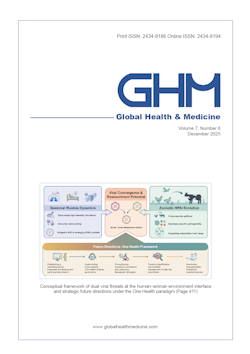Global Health & Medicine 2020;2(5):269-272.
Clinical implications of WNT/β-catenin signaling for hepatocellular carcinoma
Asaoka Y, Tanaka A
Immune checkpoint inhibitors have entered clinical practice for the treatment of hepatocellular carcinoma (HCC). Several previous studies for other cancers have revealed that tumor mutation burden, tumor PDL1 expression and cytotoxic T-cell infiltration are predictive of treatment response. The genetic analysis of HCC has shown that β-catenin mutation might be a biomarker predicting the poor response against immune checkpoint inhibitors. β-catenin is a transcription factor downstream of WNT signaling and somatic mutations of this gene are the third most common in HCC. WNT signaling is an important signal for organogenesis and is also involved in the maintenance of stem cells in several organs. Recently, clinical and basic studies have shown the specific roles of WNT/β-catenin signaling in many aspects of hepatic function and carcinogenesis including metabolic zonation and inflammation, and sub-classification and radiologic features of HCC. Base on the review on the recent advances of research investigating WNT/β-catenin signaling associated with hepatocytes, we speculate the clinical role of this signal on the immunotherapy for HCC, which suggests that an era of genetic mutation profiles may be coming to add to the HCC treatment algorithm.
DOI: 10.35772/ghm.2020.01099







